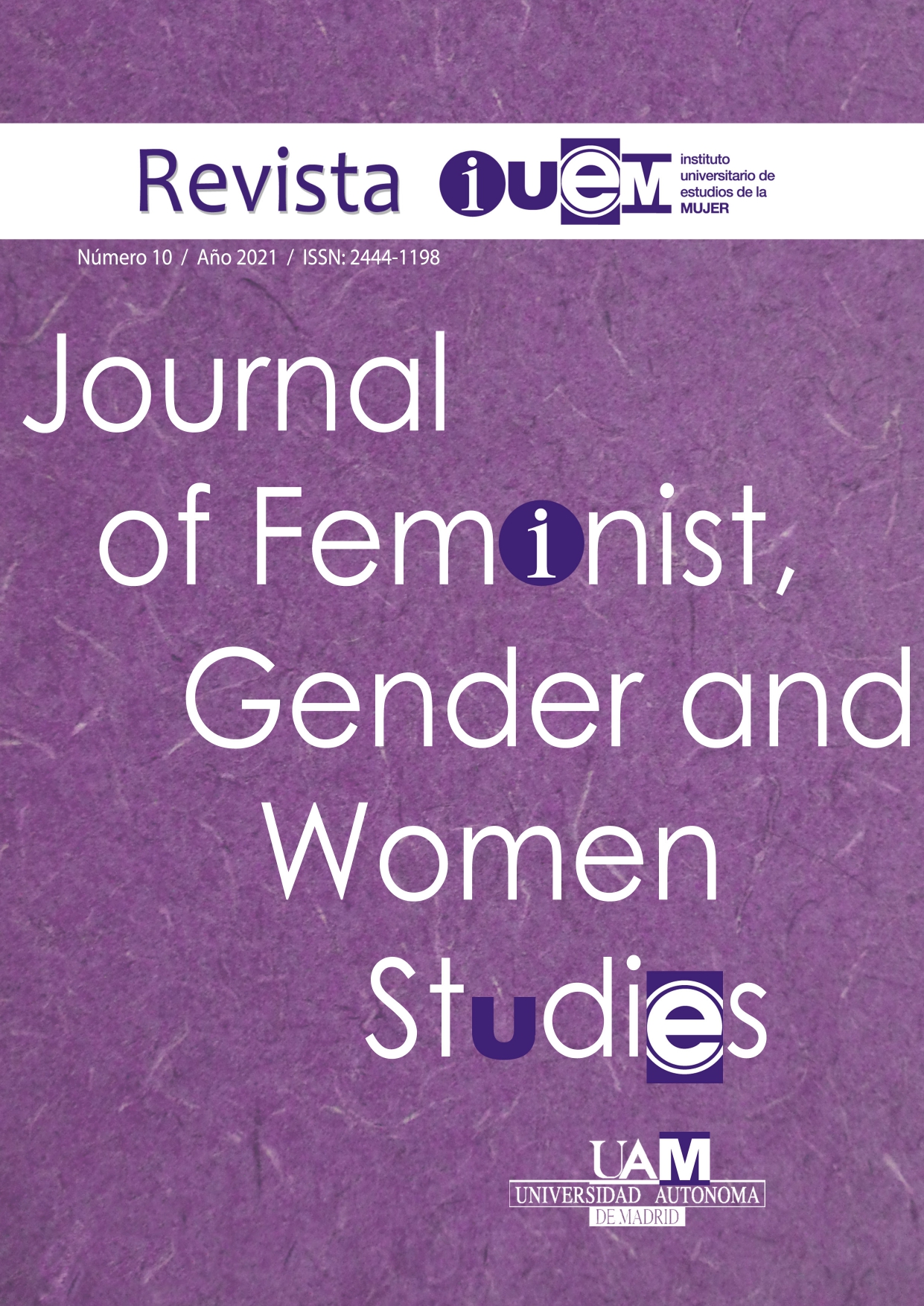Pregnancy is a machine, not a woman» Dehumanization and misogynous sexism in pro ‘gestational work’ approach
Keywords:
Gestational Surrogacy, Dehumanization, Misogynous sexism, Technofeminism, WomenAbstract
The ‘professional pregnancy’ and the ‘cyborg gestator’ could seem parts of a dystopian transhumanist future where the gestation of human life is not foreseen without neither the technological intervention nor its integration into the market logics. However, for a few academic discourses within the queer and trans arenas, these ideas are already a reality. In this essay I present an abolitionist and political feminist critique about gestational surrogacy and its subsequent idea of ‘gestational work’. Focusing in woman as a political subject I draw on the ideas of critical feminist thinkers regarding this practice. I am also based on the most relevant ethnographic contributions about the issue. I analyse the pro wombs-for-rent flow by paying special attention to the political challenges that this position poses in relation to women’s reproductive rights. I examine the misogynous sexism of the neologisms like ‘professional gestator’ and similar formulas. I prove that supportive proposals of gestational surrogacy contain classical androcentric characteristics as to the insistent intention of intervening technologically in the vital process that gestation is. I conclude with the idea that laboring and mechanizing maternity implies a marginalization of the human experience in order to resignify the process to both the biocapitalistic paradigm and the technopower structures. Finally, this leads directly to dehumanization and to the extreme exploitation of women.
Downloads
References
Balaguer, Maria Luisa. 2017. Hij@s del mercado. La maternidad subrogada en un Estado Social. Madrid: Cátedra.
"The world's first artificial womb for humans". 2019. BBC. 16/10/2019 https://www.bbc.com/news/av/health-50056405/the-world-s-first-artificial-womb-for-humans
Beauvoir, Simone de. 1999. El segundo sexo. Madrid: Cátedra.
Boris, Eileen y Salazar Parreñas, Rhacel (eds). 2010. Intimate Labors: Cultures, Technologies, and the Politics of Care. Stanford CA: Stanford University Press.
CCMA. 2016. Nens que no vénen de París. España: CCMA. https://www.ccma.cat/tv3/alacarta/30-minuts/nens-que-no-venen-de-paris/video/5557406/
Cooper, Melinda y Waldby, Catherine. 2014. Clinical Labor: Tissue Donors and Research Subjects in the Global Bioeconomy. Durham NC: Duke University Press. https://doi.org/10.1215/9780822377009
Corea, Gena. 1988. The mother machine: reproductive technologies from artificial insemination to artificial wombs. London: Women's Press.
Expósito García, Mercedes. 2004. La maternidad en el siglo XXI: una construcción imaginario-tecnológica. Thémata, Revista de Filosofía, 33: 185-90.
González García, Marta y Pérez Sedeño, Eulalia. 2002. Ciencia, tecnología y género. OEI Enero-Abril.
Haraway, Donna J. 1991. Ciencia, «cyborgs» y mujeres: la reinvención de la naturaleza. Madrid: Cátedra.
Harrison, Laura. 2016. Brown Bodies, White Babies. The Politics of Cross-Racial Surrogacy. New York Press. https://doi.org/10.18574/nyu/9781479808175.001.0001
Kroløkke, Charlotte Halmø y Pant, Saumya. 2012. "I only need her uterus": Neo-liberal Discourses on Transnational Surrogacy. NORA - Nordic Journal of Feminist and Gender Research 20 (4): 233-48. https://doi.org/10.1080/08038740.2012.729535.
Lee, Robyn. 2018. Breastfeeding and sexual difference: Queering Irigaray. Feminist Theory 19 (1): 77-94. https://doi.org/10.1177/1464700117742876.
Lewis, Sophie. 2017. Defending Intimacy against What? Limits of Antisurrogacy Feminisms. Signs: Journal of Women in Culture and Society 43 (1): 97-125. https://doi.org/10.1086/692518.
Lewis, Sophie. 2018. International Solidarity in reproductive justice: surrogacy and gender-inclusive polymaternalism. Gender, Place & Culture 0524: 1-21. https://doi.org/10.1080/0966369X.2018.1425286.
Lewis, Sophie. 2019. Full Surrogacy Now. London and New York: Verso.
Martínez, Layla. 2019. Gestación subrogada. Capitalismo, patriarcado y poder. Logroño: Pepitas.
Mies, Maria y Shiva, Vandana. 2014. Ecofeminismo. Barcelona: Icaria Editorial.
Muraro, Luisa. 2017. El alma del cuerpo. Barcelona: Icaria Editorial.
Nuño Gómez, Laura. 2016. Una nueva cláusula del Contrato Sexual: vientres de alquiler. Isegoría 55 (diciembre): 683. https://doi.org/10.3989/isegoria.2016.055.15.
Oksala, Johanna. 2019. Feminism against Biocapitalism: Gestational Surrogacy and the Limits of the Labor Paradigm. Signs: Journal of Women in Culture and Society 44 (4): 883-904. https://doi.org/10.1086/702031.
Pande, Amrita. 2014. Wombs in Labor: Transnational Commercial Surrogacy in India. Columbia University Press. https://doi.org/10.7312/pand16990
Pérez Sedeño, Eulalia y Ortega Arjonilla, Esther (eds). 2014. Cartografías del cuerpo. Madrid: Cátedra.
Puleo, Alicia. 2017. Nuevas formas de desigualdad en un mundo globalizado. El alquiler de úteros como extractivismo. Revista Europea de Derechos Fundamentales 29: 165-84.
Raymond, Janice. 1989. At Issue Reproductive Technologies, Radical Feminism and Socialist Liberalism. Reproductive and Genetic Engineering: Journal of International Feminist Analysis 2 (2).
Rich, Adrienne. 2019. Nacemos de mujer. La maternidad como experiencia e institución. Madrid: Traficantes de sueños.
Rodríguez Magda, Rosa María. 2019. La mujer molesta. Feminismos postgénero y transidentidad sexual. Editorial Ménades.
Rudrappa, Sharmila. 2015. Discounted Life. The Price of Global Surrogacy in India. New York: NYU Press. https://doi.org/10.18574/nyu/9781479874521.001.0001
Salazar Benítez, Octavio. 2018. La gestación para otros. Madrid: Dykinson.
Schurr, Carolin. 2018. The baby business booms: Economic geographies of assisted reproduction. Geography Compass 12 (8): 1-15. https://doi.org/10.1111/gec3.12395.
Simón Rodríguez, Elena. 2008. Hijas de la igualdad, herederas de injusticias. Madrid: Narcea.
Twine, France Winddance. 2015. Outsourcing the womb. Race, class and gestational surrogacy in a global market. Routledge. https://doi.org/10.4324/9781315720128
Valcárcel, Amelia. 2019. Ahora, feminismo. Cuestiones candentes y frentes abiertos. Madrid: Cátedra.
Wajcman, Judy. 2006. El tecnofeminismo. Madrid: Cátedra.
